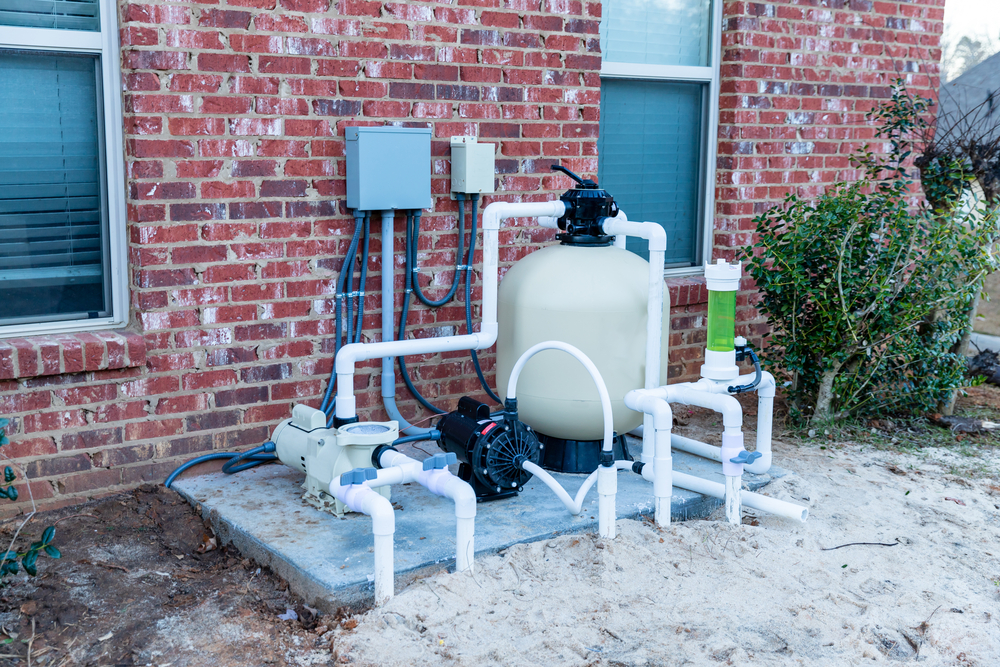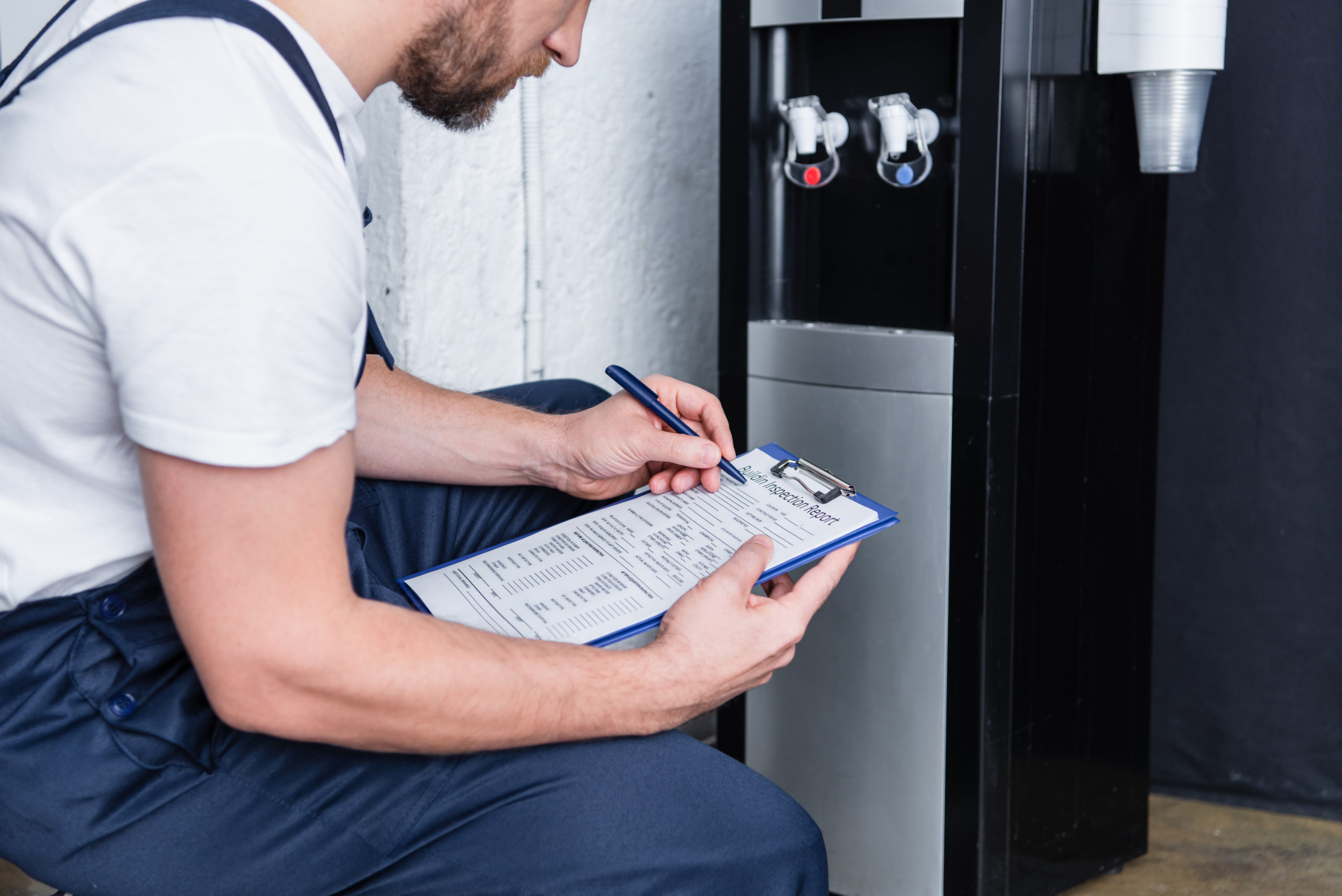You’re passionate about your pool. It’s your oasis, your personal paradise. But are you giving its upkeep the attention it deserves?
Neglecting regular equipment inspections can lead to costly repairs and unsafe swimming conditions. Don’t let that happen!
Dive into this comprehensive guide on maintaining your pool’s health with routine equipment checks. It’s easier than you’d think, and we’ll show you how to do it right.
Understanding the Role of Pool Equipment
It’s crucial to understand what role each piece of pool equipment plays in maintaining your pool’s overall health. Your pool is a complex system, where every part, from the pump to the filters and heaters, has a specific function and lifespan. A comprehensive knowledge of these can help you optimize equipment efficiency.
Take the pool pump for instance; it circulates water through your filtration system, removing debris and preventing stagnation. Its lifespan usually spans 8-10 years but that’s contingent on regular maintenance. Similarly, understanding how to properly clean and replace filters extends their usability while maximizing filtration efficiency.
Your heater also requires attention. It adjusts temperature making your pool comfortable year-round. Most gas heaters last 5-10 years while heat pumps can serve up to 20 with suitable upkeep.
Remembering these lifespans isn’t just about replacements though; it’s about preemptive action – identifying signs of wear or dysfunction early on so you can fix issues before they escalate.
Understanding this interplay between Pool Equipment Lifespan and Equipment Efficiency Optimization puts you in control of your pool’s health ensuring longevity and optimal performance over time. That’s why mastering these dynamics is essential for any serious pool owner looking for sustainable operation.
Key Elements of Pool Equipment Inspection
You’ll need to focus on vital components like filters, pumps, and heaters during your routine checks. These pieces of equipment are essential for ensuring water circulation and maintaining the correct temperature. Your inspection frequency can significantly impact these elements’ performance and equipment lifespan.
1. Filters: Examine your filter system regularly for clogs or damage that might hinder its functionality. Remember, a well-maintained filter extends the swimming pool’s service life.
2. Pumps: Check the pump basket for debris every week and lubricate all necessary parts monthly to prevent breakdowns.
3. Heaters: Inspect heaters yearly before the cold seasons hit. Look out for scale build-up that could reduce efficiency or cause more serious problems down the line.
4. Overall System: Lastly, always keep an eye out for leaks across your entire system as they can lead to significant water loss if left unaddressed.

Potential Risks of Neglected Pool Equipment
Neglecting your pool’s equipment can lead to serious issues. This includes inefficient filtration, poor water circulation, and even costly damages. It’s crucial to understand that the longevity of your pool components is directly related to their maintenance frequency. You’re not just looking at diminished performance but also considerably shortened equipment lifespan.
Let’s delve into safety concerns. Pumps and filters that aren’t working optimally can cause stagnant water and bacterial growth, posing a health risk for users. On top of that, neglected equipment might malfunction or fail entirely, leading to potential physical harm. For example, cracked drain covers could cause entrapment hazards, and sharp edges might lead to cuts and injuries.
Furthermore, poorly maintained heaters may present fire risks due to overheating or gas leaks in certain models. Electrical components pose another set of dangers if allowed to deteriorate without proper inspection. Electrocution isn’t something you’d want anywhere near your leisure area.
The Impact of Regular Inspection on Pool Maintenance
By maintaining a consistent check on your swimming area’s components, you’re not only promoting their longevity but also ensuring a safe and enjoyable environment for everyone. The impact of regular inspection on pool maintenance is vast, from detecting minor issues before they escalate into costly problems to extending the lifespan of your equipment.
Here are four ways regular inspections influence pool maintenance:
1. Inspection Frequency: Regular inspections allow you to identify and address issues early on. This reduces the need for frequent, expensive repairs.
2. Cost-Benefit Analysis: While there’s an upfront cost associated with routine inspections, it’ll save you more in the long run by preventing major breakdowns.
3. Equipment Lifespan: Consistent checks help maintain the optimal working condition of your equipment, thereby prolonging its lifespan.
4. Safety Assurance: Regular inspections ensure that all components are functioning correctly, providing a safe environment for users.
It’s crucial to understand that while inspection costs may seem like an unnecessary expense initially, they’re actually an investment towards maintaining your pool’s functionality and safety measures over time. Achieving mastery in this area will lead to less stress down the line and more enjoyment out of your swimming area!
Tips for Conducting Effective Pool Equipment Checks
It’s vital to know some handy tips for conducting effective checks on your swimming area’s hardware. Establishing an inspection frequency is a great starting point. This means you’ll need to decide how often you should check your pool equipment, which could range from daily to weekly, monthly, or even annually depending on the type of device and its usage.
In addition, it’s essential that you understand each piece of equipment thoroughly. Familiarize yourself with their functionality and be alert for any signs of damage or wear and tear. Don’t forget to review manufacturer’s manuals as they usually provide comprehensive information about routine maintenance checks.

You must also consider equipment upgrading when necessary. If you find that certain machinery performs less efficiently over time despite regular inspections, it might be due for an upgrade. Investing in newer technology not only enhances performance but can also contribute to energy efficiency and cost savings in the long run.
Lastly, always document your findings during each inspection-this aids in tracking potential issues earlier and planning corrective measures promptly. Remember – diligence is key when maintaining a safe and efficient swimming facility!
Frequently Asked Questions
How Much Does a Professional Pool Equipment Inspection Typically Cost?
You’ll find that professional pool equipment inspection costs vary. They’re influenced by factors like location, pool size, and equipment complexity. Despite this, the inspection benefits often outweigh these costs in the long run.
Can I Inspect and Maintain My Pool Equipment by Myself or Should I Hire a Professional?
You can conduct basic inspections yourself, but there are DIY inspection risks. Professionals understand subtle signs of damage and wear. Hiring them offers peace of mind that your pool equipment is safe and functional.
What Are Some Common Signs That My Pool Equipment May Need to Be Replaced?
If you’re noticing frequent leaks, irregular noises or decreased performance, your pool equipment may need replacing. Regular inspections and preventative measures can extend equipment warranties and save you costly repairs in the long run.
How Often Should I Replace My Pool Equipment?
You don’t always need to replace your pool equipment. It’s lifespan can be extended with preventive measures. However, typically every 5-10 years is ideal for ensuring optimal performance and safety.
Are There Any Specific Brands or Types of Pool Equipment That Tend to Be More Reliable and Require Less Frequent Inspections?
While equipment durability comparisons reveal some brands may be more reliable, it’s crucial you don’t skip inspections. Brand performance analysis can guide your purchases, but regular checks ensure optimal functioning regardless of brand reputation.
